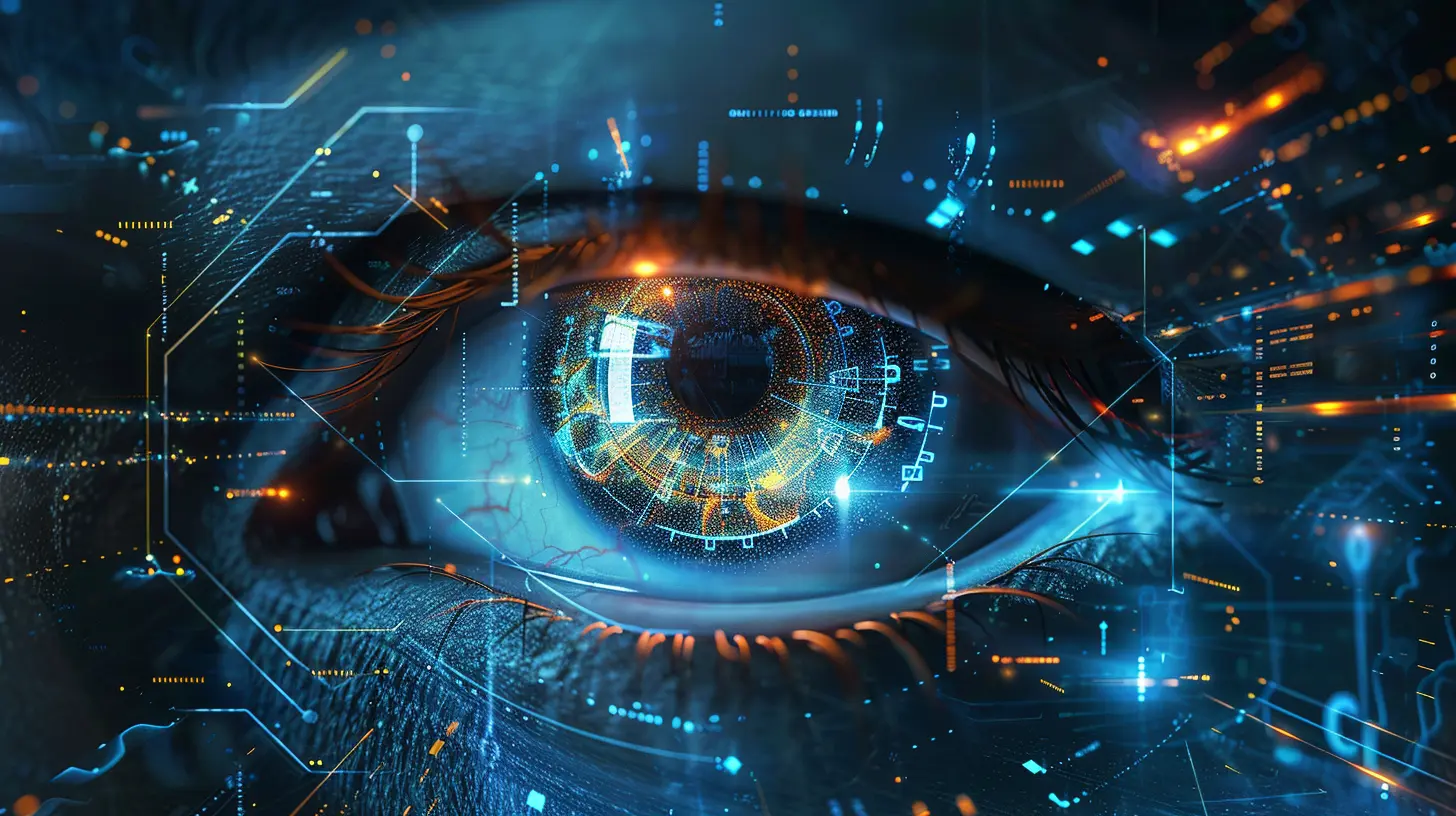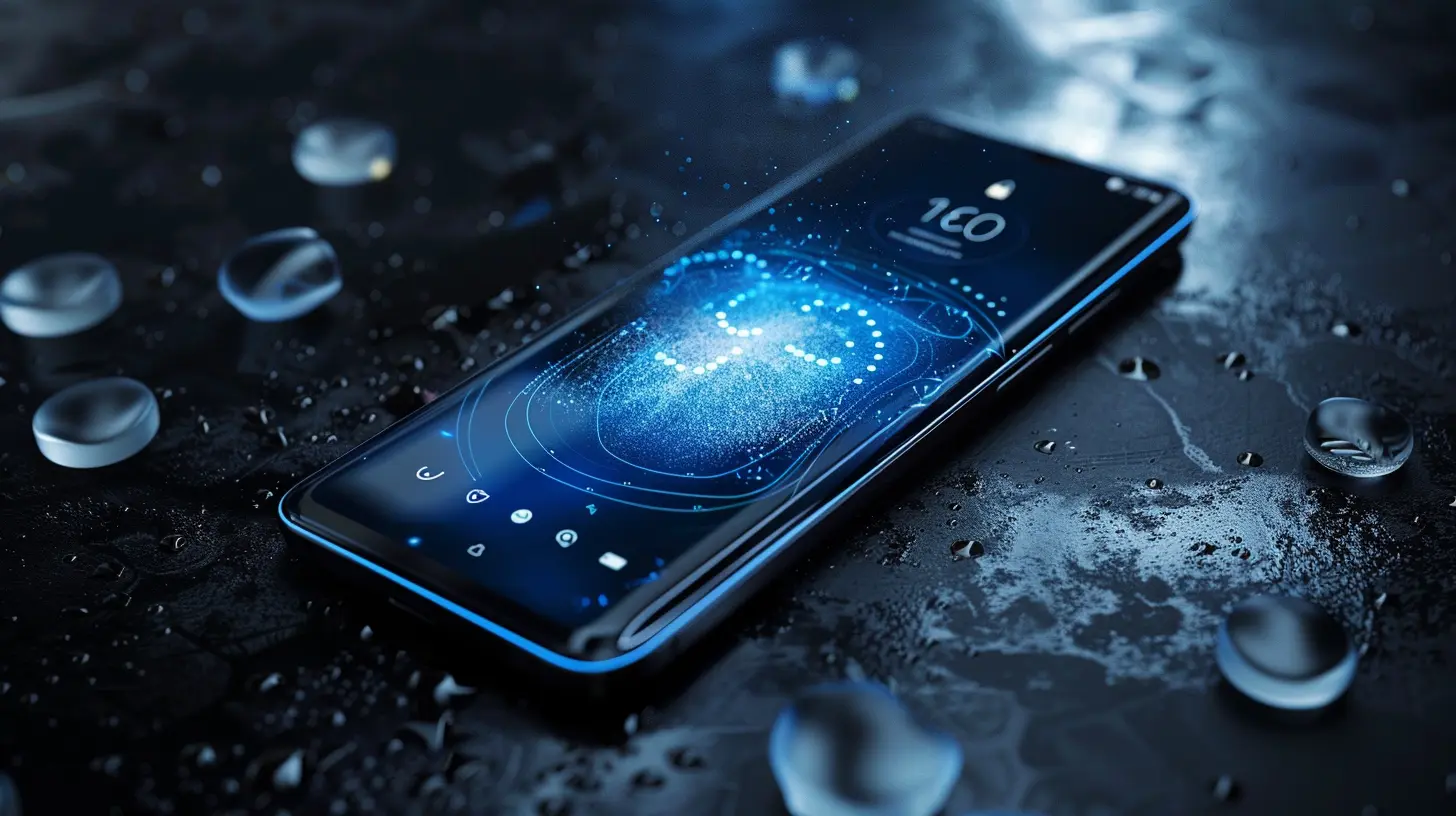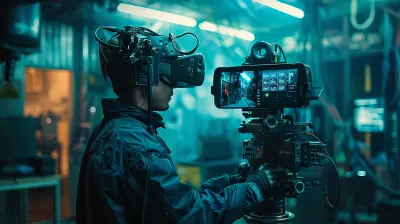The Role of Biometric Sensors in Smartphone Security
19 March 2025
Imagine this: You pull your phone out of your pocket, place your thumb on the screen, and—bam!—it unlocks instantly. No PINs to remember, no patterns to draw. That's the magic of biometric sensors at work. But have you ever thought about how these tiny sensors are actually reshaping smartphone security? Could they be the future, or are they just a fancy convenience? Let's dive into the world of biometric sensors and explore their ever-growing role in keeping our smartphones—and our data—secure.

What Are Biometric Sensors?
Before we get ahead of ourselves, let's make sure we're on the same page. What exactly are biometric sensors? In simple terms, biometric sensors are devices that capture unique biological characteristics—your fingerprint, face, iris, or even voice—and convert them into digital data. This data is then analyzed to verify your identity.Think of biometric sensors as the digital equivalent of a personal bodyguard. They ensure that only you can access your smartphone, adding an extra layer of security that goes beyond traditional methods like passwords or PINs. Pretty cool, right?
Types of Biometric Sensors in Smartphones
When it comes to biometric sensors in smartphones, it's not a "one-size-fits-all" situation. Different types of sensors focus on different aspects of human biology. Here's a quick roundup of the most common ones you'll encounter:1. Fingerprint Sensors
The OG of smartphone biometrics! Fingerprint sensors have been around for quite a while now. They're fast, reliable, and easy to use. Just place your finger on the sensor, and you're in. The technology behind it is simple: it maps the ridges and valleys of your fingerprint and compares that to a stored version for authentication.
2. Face Recognition Sensors
Remember the hullabaloo when Apple introduced Face ID with the iPhone X? Facial recognition is another popular biometric tool. These sensors scan your face's unique features—like the distance between your eyes or the shape of your jawline—and use that to verify your identity.
3. Iris Scanners
Iris scanning takes things to a whole new level. This technology captures the intricate patterns of your iris (the colored part of your eye) and uses it for authentication. It's more secure than facial recognition and fingerprint scanning but less common because it's harder to implement.
4. Voice Recognition Sensors
Voice recognition sensors analyze the sound patterns of your voice. While not as widely used as fingerprint or facial recognition, voice authentication is handy in hands-free situations.

Why Are Biometrics Better Than Traditional Methods?
You might be wondering, “Okay, these sensors sound great, but why should I care? What’s wrong with just using a password or PIN?”Well, glad you asked! There are several reasons why biometrics are considered superior to traditional methods like passwords. Let’s break it down:
1. They're More Convenient
Ever forgotten your password right when you need to unlock your phone? Yeah, we've all been there. With biometric sensors, there's no need to remember anything. You already carry your fingerprint, face, or iris around with you everywhere you go—so why not use it?2. They're Faster
Typing out a password or drawing a pattern takes time. Biometric sensors, on the other hand, work almost instantaneously. In less than a second, your phone is unlocked and ready to go. Time saved equals more time for scrolling through social media, right?3. They're Harder to Crack
Passwords and PINs can be guessed, hacked, or stolen, but biometrics? Not so much. Sure, no security is perfect, but stealing someone's fingerprint or face scan is way trickier than guessing "1234" or "password123."4. They Offer Multi-Factor Authentication
In some cases, smartphones combine biometric methods with traditional ones for added security. This is known as multi-factor authentication (MFA). For example, you might need to both scan your fingerprint and enter a PIN to access sensitive apps like banking or email. It's like having a double lock on your front door—just in case.
How Do Biometric Sensors Work?
Now that we've established why biometrics are awesome, let’s take a closer look at how these sensors actually work. After all, there's a lot going on behind the scenes when you place your thumb on that little square.Fingerprint Scanning
Fingerprint sensors typically use one of two technologies: capacitive or optical. Capacitive sensors measure the electrical current between your finger’s ridges and valleys, while optical sensors take a high-res photo of your fingerprint and compare it to the stored image.The cool thing is that these sensors don’t just store your fingerprint as an image. Instead, they convert it into a cryptographic key (a series of numbers and letters) to ensure that it can’t be stolen or misused.
Facial Recognition
Facial recognition uses either 2D or 3D scanning. 2D scanning works with a regular camera, capturing a flat image of your face. 3D scanning, on the other hand, uses infrared sensors to create a depth map of your face, making it much harder to fool with photos or videos.Apple’s Face ID, for instance, projects thousands of tiny infrared dots onto your face to create a detailed 3D map. This is why it works so well even in low-light conditions.
Iris Scanning
Iris scanners are incredibly precise. They use infrared light to capture the unique patterns of your iris, which are said to be more distinct than your fingerprint. Once scanned, this data is encrypted and stored locally on your phone.
Security Concerns: Are Biometrics Foolproof?
Alright, time for some real talk. While biometrics are undeniably convenient and secure, they're not totally foolproof. After all, no security system is. So, what are the potential pitfalls?1. Spoofing
In some cases, biometric systems can be tricked—or “spoofed”—by fake fingerprints, 3D-printed faces, or even high-resolution photos. For instance, researchers have demonstrated how lifelike masks can sometimes fool facial recognition systems. However, companies are constantly improving their sensors to avoid these vulnerabilities.2. Privacy Concerns
One of the biggest issues with biometrics is privacy. After all, if someone gets hold of your fingerprint or face scan, you can’t exactly change it like you would a password. That’s why most smartphone manufacturers store biometric data locally on the device, often in something called a Secure Enclave, which prevents unauthorized access.3. Biometric Data Theft
Although rare, biometric data can still be stolen. Hackers might not be able to crack encrypted biometric data, but if they manage to find a loophole, the consequences could be worse than a stolen password. The good news? Most biometric data is stored locally on your phone and never sent to the cloud, which makes it harder for hackers to access.The Future of Biometric Sensors in Smartphones
As smartphones evolve, so too will biometric sensors. We’re already seeing advancements like in-display fingerprint sensors, which are now common in many high-end smartphones. These sensors are embedded under the screen, allowing for a more seamless user experience.In the future, we might also see the rise of multi-modal biometrics—the use of more than one biometric method at the same time. For example, your phone could use both your fingerprint and your face for even greater security. The more layers of verification, the harder it is for intruders to break in.
Another exciting possibility? Behavioral biometrics. This technology analyzes how you use your phone—how you swipe, type, or even walk—and uses that data to verify your identity. It’s still in its early stages, but the potential is huge.
Conclusion: Biometrics Are Here to Stay
Biometric sensors have come a long way in making our smartphones more secure and user-friendly. Whether it's a fingerprint, face, or iris scan, these technologies are revolutionizing the way we unlock our phones and protect our data. But like any technology, they come with their own set of challenges—mainly privacy concerns and the possibility of spoofing.That said, the convenience and security provided by biometric sensors have made them an indispensable part of modern smartphone security. As these technologies continue to evolve, it's clear that biometrics are not just a passing trend—they're here to stay.
So, next time you unlock your phone with a simple glance or tap, take a moment to appreciate the sophisticated technology working behind the scenes!
all images in this post were generated using AI tools
Category:
SmartphonesAuthor:

Reese McQuillan
Discussion
rate this article
11 comments
Uzi McGinn
Biometric sensors: because typing your password is so last century! Unlock with style!
April 7, 2025 at 8:15 PM

Reese McQuillan
Absolutely! Biometric sensors not only enhance security but also streamline access, making smartphones more user-friendly and stylish.
Pierce Velez
Great article! It's reassuring to see how biometric sensors are enhancing smartphone security, making our digital lives safer and more convenient.
April 6, 2025 at 3:04 AM

Reese McQuillan
Thank you for your feedback! I'm glad you found the article informative. Biometric sensors truly are game-changers in enhancing our digital security.
Hope McIntire
Biometric sensors are revolutionizing smartphone security by providing advanced authentication methods. With features like facial recognition and fingerprint scanning, they enhance user convenience while significantly reducing the risk of unauthorized access, making our devices safer than ever.
April 5, 2025 at 2:57 AM

Reese McQuillan
Thank you for your insightful comment! I agree—biometric sensors significantly enhance smartphone security, balancing convenience with robust protection against unauthorized access.
Sloan Good
Biometric sensors enhance security, user convenience.
April 3, 2025 at 11:16 AM

Reese McQuillan
Thank you! Indeed, biometric sensors significantly improve both security and user convenience, making smartphones more reliable and user-friendly.
Kael Valentine
Biometric sensors are revolutionizing smartphone security, making our devices safer and more personal than ever. Embracing this technology not only enhances our privacy but also empowers us to interact with our devices in intuitive ways. Let's celebrate innovation that prioritizes our security and convenience—here's to a safer digital future!
April 2, 2025 at 3:34 AM

Reese McQuillan
Thank you for your insightful comment! I completely agree—biometric sensors are indeed transforming smartphone security, enhancing both safety and user experience. Here's to continued innovation in this crucial area!
Mitchell Rivera
Biometric sensors undoubtedly enhance smartphone security by offering a unique layer of protection beyond traditional passwords. However, the challenge lies in balancing convenience with privacy. As technology advances, ensuring that biometric data remains secure against breaches will be essential for user trust and safety.
March 30, 2025 at 7:24 PM

Reese McQuillan
Thank you for your insightful comment! I agree, balancing convenience and privacy is crucial as we advance biometric technology. Ensuring robust security for biometric data will indeed be key to maintaining user trust.
Peter McCartney
Biometric sensors have become integral to smartphone security, offering enhanced protection through unique user identification methods like fingerprint and facial recognition. While they significantly improve device security, concerns about data privacy and hacking remain. Manufacturers must prioritize robust encryption and user education to ensure the safe implementation of this technology.
March 30, 2025 at 4:37 AM

Reese McQuillan
Thank you for your insightful comment! You’re right that while biometric sensors enhance security, prioritizing robust encryption and user education is crucial to address privacy concerns.
Thorne Cain
Biometric sensors revolutionize smartphone security effectively.
March 29, 2025 at 4:42 AM

Reese McQuillan
Thank you! Biometric sensors indeed enhance smartphone security by providing a convenient and secure way to authenticate users.
Misty McDaniel
Biometric sensors significantly enhance smartphone security, offering convenience and improved protection. However, they aren't foolproof and should complement other security measures.
March 26, 2025 at 8:53 PM

Reese McQuillan
Thank you for your insightful comment! You're absolutely right—while biometric sensors enhance security and convenience, it's essential to combine them with additional measures for optimal protection.
Candice McQuaid
Biometric sensors: your phone’s personal bodyguard!
March 25, 2025 at 5:17 AM

Reese McQuillan
Absolutely! Biometric sensors enhance smartphone security by providing a personalized and secure method for authentication, acting as a digital bodyguard for your personal data.
Fern Johnson
This article effectively highlights the growing importance of biometric sensors in enhancing smartphone security. By leveraging unique biological traits, such as fingerprints and facial recognition, these technologies offer a convenient and secure way to protect personal information. As cyber threats evolve, investing in biometric solutions is essential for safeguarding our digital lives.
March 19, 2025 at 11:44 AM

Reese McQuillan
Thank you for your insightful comment! I'm glad you found the article highlights the crucial role of biometric sensors in enhancing smartphone security. Your emphasis on their convenience and necessity in combating cyber threats is spot on!
MORE POSTS

How AI Is Transforming Data Center Management

Thin and Light Laptops that Don’t Compromise on Power

The Role of Virtual Reality in Modern Digital Transformations

Quantum Machine Learning: Where AI Meets Quantum Physics

The Impact of Satellite Internet on Global Connectivity

How Blockchain is Shaping the Future of Digital Identity

Social Engineering Attacks: What They Are and How to Avoid Them

Fintech Startups Disrupting Traditional Banking: Key Players to Watch